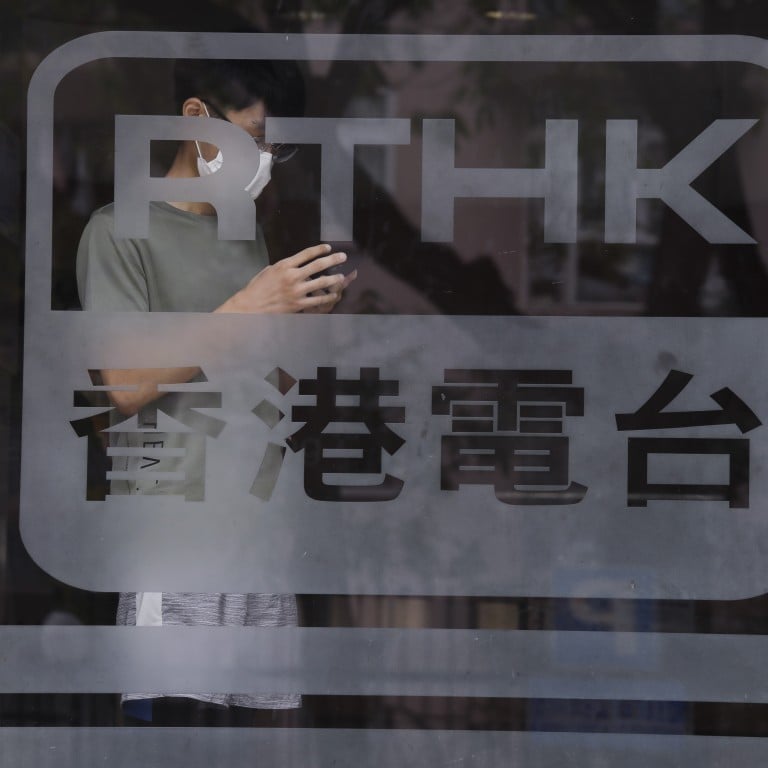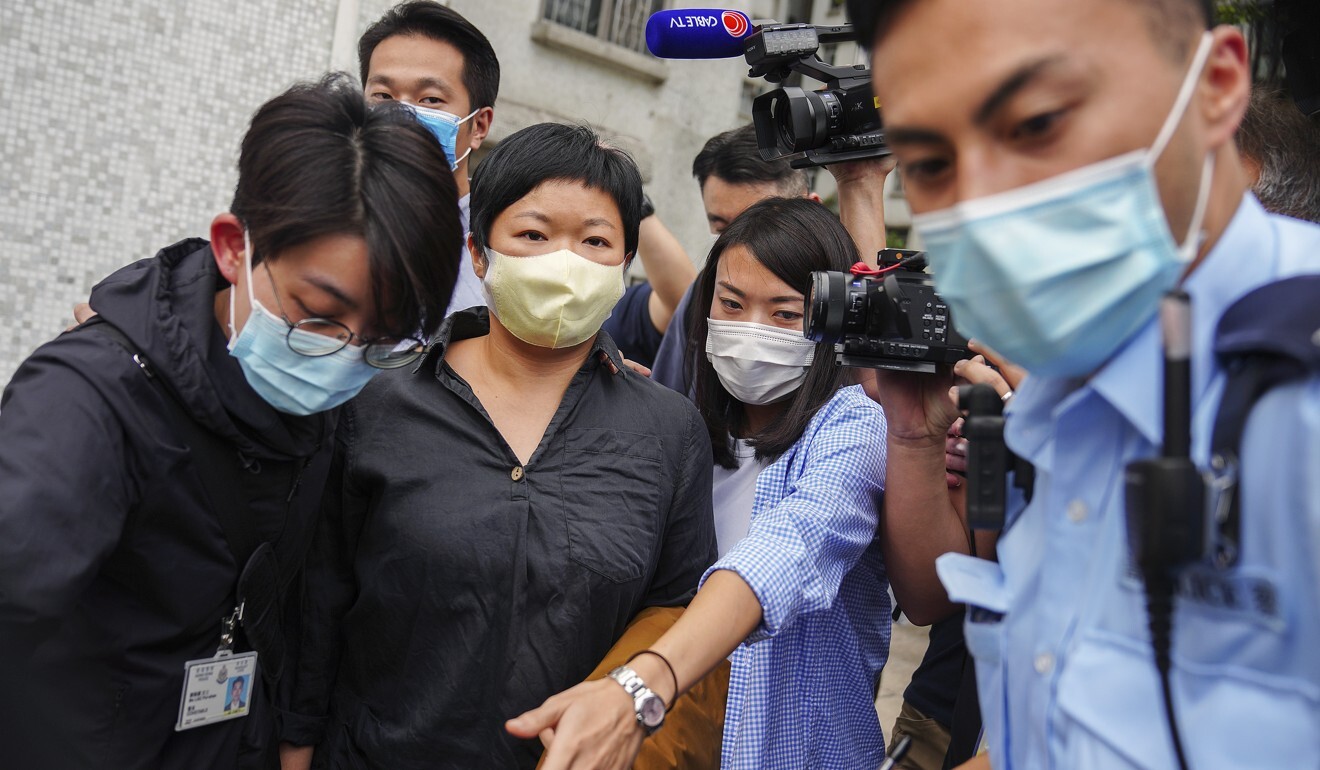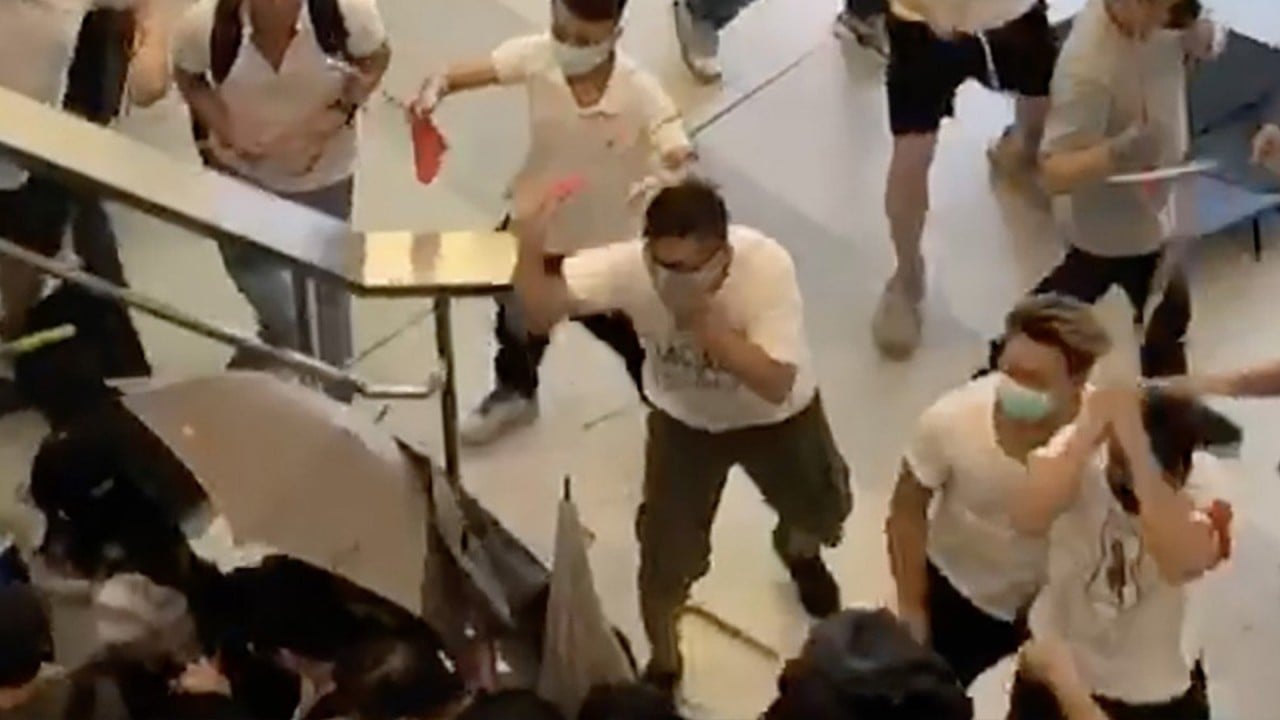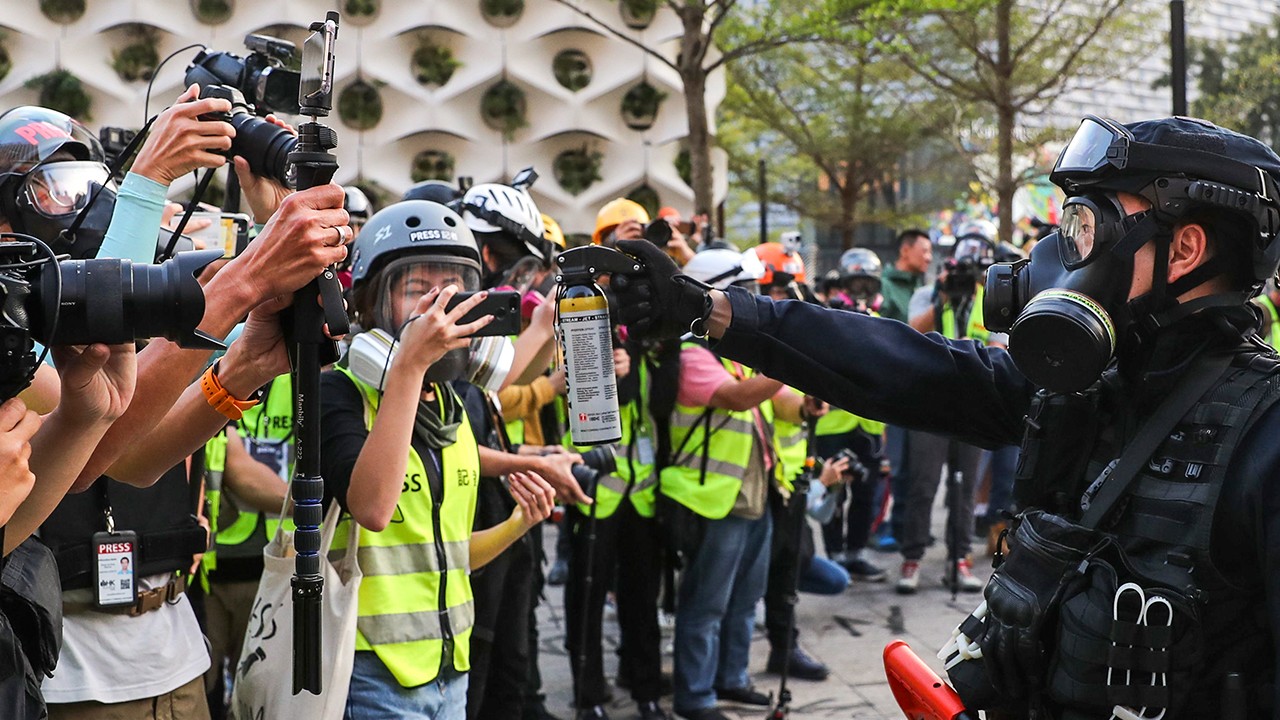
Explainer | Why RTHK journalist was arrested, and what that could mean for future of investigative reporting in Hong Kong
- Police arrested Bao Choy on suspicion of making false statements under the Road Traffic Ordinance
- Choy had worked on a programme looking into the mob attack in Yuen Long during last year’s civil unrest
Media academics and unions have accused police of creating a chilling effect on investigative journalism, while the force insisted it was not targeting reporters or any particular programmes.
The controversy has created a lot of uncertainty as to how journalists in the city should carry out their jobs.
■ Why was the reporter arrested?
Bao Choy Yuk-ling, 37, has been charged with two counts of making false statements under the Road Traffic Ordinance when searching for personal details of car owners in the government database.
A police source said the investigation was prompted by a complaint from a member of the public and a referral from the Office of the Privacy Commissioner for Personal Data.

■ What exactly did Choy do in relation to her offence?
She had sought to access what is officially known as the Certificate of Particulars of Motor Vehicle through the Transport Department website in May and June, which would allow her to obtain personal details of car owners such as their names, addresses and identity card numbers.
Applicants need to fill out an online application form but they can only tick boxes citing “legal proceedings”, “sale and purchase of vehicles”, and “other traffic and transport related matters” as the purpose for seeking the information. News reporting is not an available option.
In an older version of the form still available in December, a space was provided for members of the public to state their exact purpose for requesting car owners’ personal data. But that option was removed in the updated version now available online.
Arrest of reporter over show on Yuen Long mob attack sparks media fury
■ What was Choy investigating?
Choy, 37, was one of three producers of an episode of the television show Hong Kong Connection that was broadcast on July 13 this year titled “7.21: Who owns the truth” to mark the first anniversary of the Yuen Long attack.
In what was widely seen as a turning point in last year’s civil unrest, a group of white-clad men indiscriminately attacked passengers and protesters returning from a rally.
The slow police response that night sparked a public outcry, with officers accused of colluding with the assailants – an allegation police have repeatedly denied.
The 30-minute programme sought to identify those wearing white by reviewing security camera footage obtained from nearby shops and videos posted online.
Choy is believed to have conducted searches through the Transport Department website to identify the owners of cars in the vicinity captured on video, which were said to have belonged to the white-clad men and used to pick up some of the attackers that night.
The RTHK report claimed some of the car owners were village heads from the neighbourhood, but most of the motorists it identified could not be reached for comment on the show.

01:37
Rod-wielding mob dressed in white storms Hong Kong’s Yuen Long MTR station, attacks protesters and passers-by
■ Why has the arrest courted controversy?
Choy’s arrest triggered a barrage of criticism and condemnation from journalist groups, scholars, lawyers and opposition politicians, who accused police of using the law to suppress press freedom in Hong Kong and impose a chilling effect on investigative journalism.
It has been common practice for the city’s journalists to search for information on vehicle, land and company ownership through the government’s online platforms.
While the privacy law exempts news coverage from criminal liability in such circumstances, the transport law provides no similar protection.
Some critics also accused the police of selective law enforcement, questioning if the force made the arrest in retaliation to being targeted in the episode.
Editorial: urgent review of laws warranted after arrest of TV journalist
■ How have journalists used different registries in investigative reporting?
Apart from vehicle licence plate searches on the Transport Department website, the Companies Registry, and Land Registry are also an investigative tool commonly used by reporters.
The Companies Registry, however, from 2016 also started to require users seeking particulars of registered companies or their directors to declare a reason for doing so, but without providing “news reporting” as an option.
The arrangement sparked concerns at the time about curbing corporate transparency, and the registry later clarified that one of the options could cover the collection of information for the purpose of news reporting activities. The registry allows users to ascertain the particulars of a company, including its directors or former directors.
With the Land Registry, users can search for the land records for a particular property. For every land transaction, they can ascertain who the registered owner of the property is and what incumbrances, if any, are registered against it. Other information includes the purchase date and the state of the mortgage.

■ What is the fear of the impact of the arrest on journalists?
Ronson Chan Ron-sing, vice-chairman of Hong Kong Journalists Association, said after the arrest that many reporters had expressed fears they would fall foul of the law just for doing their jobs.
“Conducting searches for the car owners’ personal details is very common for reporters to perform their job, such as reporting the details of a car accident or a crime,” he said. “There’s no reason that reporters face the risk of being arrested for doing some basic searches.
“Many reporters are afraid, and asked me how they could carry out their investigative reporting if they are at risk of running afoul of the law.”
Chan said the government should address the media sector’s concerns as the Basic Law guarantees press freedom in Hong Kong.

04:52
Hong Kong journalists protest against police’s new definition of ‘media representative’
■ How do other countries allow journalists the right to information for public interest while protecting privacy?
Many countries have freedom of information laws allowing the general public to access data held by national governments.
Also variously referred to as open records, or sunshine laws, governments are typically bound by a duty to publish and promote openness.
In Britain, the Freedom of Information Act 2000 gives rights of public access to information held by public authorities, and anyone can make a request for information, including printed documents, computer files, letters, emails, photographs, and sound or video recordings, regardless of who they are or where they live.
There is no requirement for the requester to explain why they need the information or to provide justification for their request.
Hong Kong public broadcaster RTHK apologises to police over satirical show
Under the law, there are exemptions with a prejudice, adverse effect or other harm-based test to prevent the disclosure of the requested information, if there is a real and significant chance it will be used to prejudice the interests protected by the exemption.
In the United States, the Freedom of Information Act is a federal statute providing that any person has a right to request access to federal agency records. It establishes a presumption that records in the possession of agencies and departments of the US government are accessible to the people, except to the extent the records are protected from disclosure by any of nine exemptions, or by one of three special law enforcement record exclusions – for instance, that the information disclosure could reasonably be expected to interfere with law enforcement proceedings.
Hong Kong has had a non-statutory Code on Access to Information in place since 1995, which requires government departments to provide information upon request, apart from a list of exceptions. But the only redress for someone denied information is to complain to the Ombudsman, who is powerless to order its disclosure.

